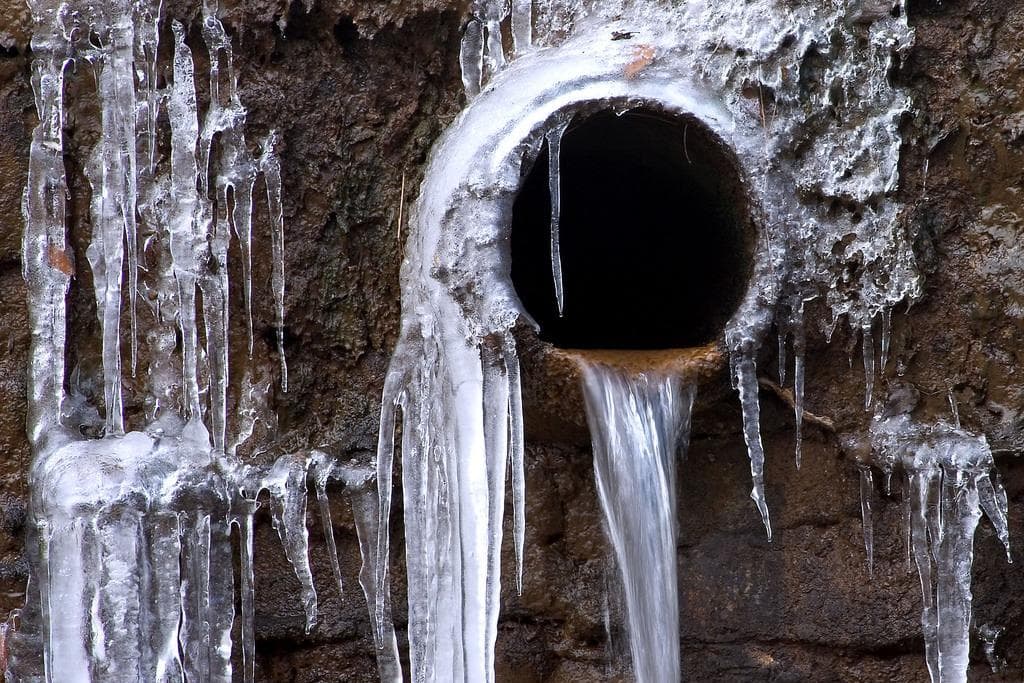Tips to Prevent Frozen Pipes in Winter: Professional Advice
Tips to Prevent Frozen Pipes in Winter: Professional Advice
Blog Article
We have noticed this article on Preventing and dealing with frozen pipes directly below on the net and think it made perfect sense to talk about it with you over here.

Winter can wreak havoc on your pipes, specifically by freezing pipelines. Below's exactly how to avoid it from occurring and what to do if it does.
Introduction
As temperature levels decline, the threat of icy pipelines rises, potentially bring about pricey repair services and water damages. Understanding exactly how to prevent frozen pipes is essential for house owners in cool climates.
Recognizing Frozen Pipes
What triggers pipelines to freeze?
Pipelines ice up when revealed to temperatures below 32 ° F (0 ° C) for prolonged periods. As water inside the pipes ices up, it expands, putting pressure on the pipeline wall surfaces and potentially causing them to rupture.
Risks and damages
Frozen pipelines can bring about water interruptions, property damages, and expensive repair services. Burst pipelines can flooding homes and trigger substantial architectural damage.
Signs of Frozen Pipes
Identifying icy pipelines early can prevent them from bursting.
Just how to identify frozen pipes
Look for lowered water flow from faucets, uncommon odors or noises from pipes, and visible frost on subjected pipes.
Prevention Tips
Insulating susceptible pipes
Cover pipelines in insulation sleeves or use warmth tape to shield them from freezing temperatures. Focus on pipes in unheated or outside locations of the home.
Home heating strategies
Maintain interior areas sufficiently heated, specifically areas with plumbing. Open cabinet doors to allow warm air to circulate around pipelines under sinks.
Securing Outdoor Plumbing
Garden hose pipes and outside taps
Separate and drain pipes garden hose pipes prior to winter. Install frost-proof faucets or cover outdoor faucets with protected caps.
What to Do If Your Pipes Freeze
Immediate activities to take
If you believe frozen pipes, keep faucets open to soothe pressure as the ice melts. Use a hairdryer or towels taken in hot water to thaw pipes slowly.
Long-Term Solutions
Architectural changes
Take into consideration rerouting pipelines away from outside wall surfaces or unheated areas. Include added insulation to attic rooms, basements, and crawl spaces.
Upgrading insulation
Purchase premium insulation for pipelines, attics, and wall surfaces. Appropriate insulation aids keep consistent temperature levels and reduces the risk of frozen pipes.
Verdict
Protecting against frozen pipes needs aggressive procedures and quick feedbacks. By comprehending the reasons, signs, and safety nets, home owners can secure their plumbing during winter.
Helpful Tips to Prevent Frozen Pipes this Winter
UNDERSTANDING THE BASICS: WHY PIPES FREEZE AND WHY IT’S A PROBLEM
Water freezing inside pipes is common during the winter months, but understanding why pipes freeze, and the potential problems it can cause is crucial in preventing such incidents. This section will delve into the basics of why pipes freeze and the associated problems that may arise.
THE SCIENCE BEHIND FROZEN PIPES
When water reaches freezing temperatures, it undergoes a physical transformation and solidifies into ice. This expansion of water as it freezes is the primary reason pipes can burst. As the water inside the pipe freezes, it expands, creating immense pressure on the walls. If the pressure becomes too great, the pipe can crack or rupture, leading to leaks and water damage.
FACTORS THAT CONTRIBUTE TO PIPE FREEZING
Low Temperatures: Extremely cold weather, especially below freezing, increases the risk of pipes freezing. Uninsulated or Poorly Insulated Pipes: Pipes located in unheated areas, such as basements, crawl spaces, or attics, are more prone to freezing. Insufficient insulation or lack of insulation altogether exacerbates the problem. Exterior Wall Exposure: Pipes running along exterior walls are susceptible to freezing as they encounter colder temperatures outside. Lack of Heating or Temperature Regulation: Inadequate heating or inconsistent temperature control in your home can contribute to frozen pipes. PROBLEMS CAUSED BY FROZEN PIPES
- Pipe Bursting: As mentioned earlier, the expansion of water as it freezes can cause pipes to burst, resulting in significant water damage.
- Water Damage: When pipes burst, it can lead to flooding and water damage to your property, including walls, ceilings, flooring, and personal belongings.
- Structural Damage: Prolonged exposure to water from burst pipes can compromise the structural integrity of your home, leading to costly repairs.
- Mold and Mildew Growth: Excess moisture from water damage can create a favorable environment for mold and mildew growth, posing health risks to occupants.
- Disrupted Water Supply: Frozen pipes can also result in a complete or partial loss of water supply until the issue is resolved.
WHY CERTAIN PIPES ARE MORE PRONE TO FREEZING
- Location: Pipes located in unheated or poorly insulated areas, such as basements, crawl spaces, attics, or exterior walls, are at higher risk of freezing.
- Exterior Pipes: Outdoor pipes, such as those used for irrigation or exposed plumbing, are particularly vulnerable to freezing as they are directly exposed to the elements.
- Supply Lines: Pipes that carry water from the main water supply into your home, including the main water line, are critical to protect as freezing in these lines can affect your entire plumbing system.
- Underground Pipes: Pipes buried underground, such as those connected to sprinkler systems or outdoor faucets, can be susceptible to freezing if not properly insulated.
https://busybusy.com/blog/helpful-tips-to-prevent-frozen-pipes-this-winter/

I discovered that piece of writing about 6 Ways to Prevent Frozen Pipes when exploring the web. For those who appreciated our blog post plz don't forget to pass it around. I enjoy your readership.
Details Here Report this page